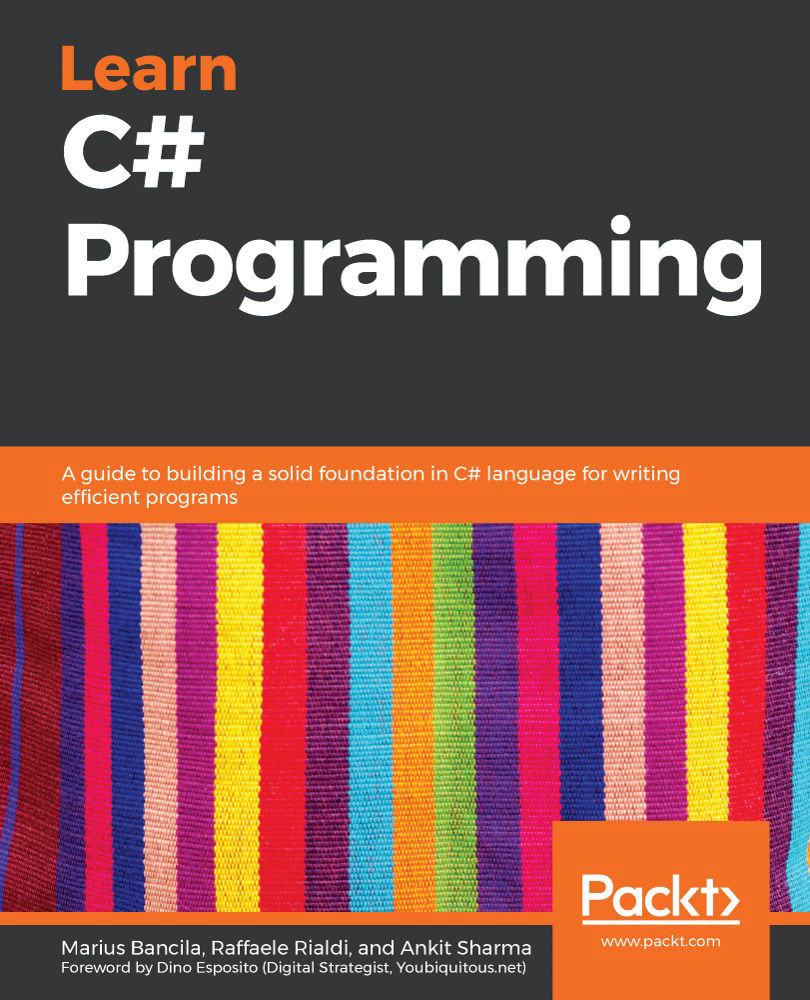-
Book Overview & Buying

-
Table Of Contents

Learn C# Programming
By :

Learn C# Programming
By:
Overview of this book
 Free Chapter
Free Chapter
 Sign In
Start Free Trial
Sign In
Start Free Trial


 Free Chapter
Free Chapter
In this chapter, we went through all the fundamental steps to follow in order to build a new application using the .NET Core runtime, which is accompanied by an increased number of APIs. We started by looking at the new powerful command line that offers all the commands that can be used to control the development life cycle of the application. The command-line extensibility removes any limitations, allowing anyone to add local and global tools to the ecosystem.
We have also seen how the command-line commands are exactly the same when developing on Linux OSes, which can be used as a developer box directly or through Windows, as you please. In fact, the Visual Studio Code remote extensions let you develop and debug the code on a Linux machine from Windows.
But we also saw that .NET Core 3 is not a one-way trip, because .NET Standard libraries allow us to share code with all the recent runtimes, making it easier to reuse the code. In addition to that, the very rich ecosystem...
